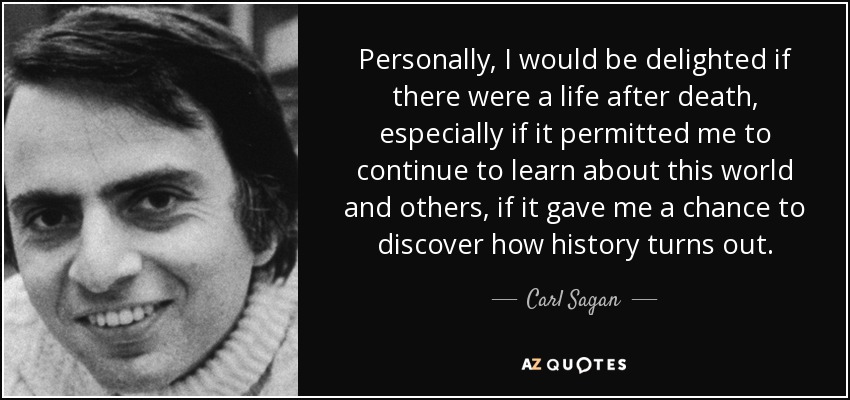UniversalAlien wrote: ↑January 7th, 2023, 7:25 am
There are many religions and occult traditions that postulate an afterlife - Defined here as the continuation of 'consciousness'
and self awareness after the biological self is deceased.
There is 'anecdotal evidence' to support this view, but as far as I know no empirical evidence has ever proven without a reasonable
doubt that conscious life exists after biological death.
What do you think 
I think that I am really tired of people, who deny that conscious experience exists after death. There is tons and tons of evidence that consciousness survives death. People who state there is no evidence obviously do not know what evidence is -- maybe they think that if they can not hold evidence in their hand it does not exist. Horsechit!
There are not "many religions and occult traditions" that postulate an afterlife -- there is
every culture and society that has ever existed from ancient history to now, from every continent on the face of the earth, throughout time, and each one of them has some tradition or religion that tries to understand and explain consciousness after death. Does anyone actually think that this is a world-wide
coincidence that has managed to endure throughout time?
Psychology says that it is not coincidence, but is instead a need. We create religions and spirits because we need to believe in them, which is more horsechit. That idea is so circular in its logic that it frightens me to think that these are college trained individuals that come up with these ideas. The truth is that we don't need anyone to tell us that spirits and death are real, we create the religions because we need to
understand spirits/death.
Then there is personal experience, which is called testimony; and yes, that is also evidence. There are also commonalities in these experiences which give them more weight. Then there are emergency room staff, EMS workers, Hospice workers, and many other professionals, who have been trained in science, and who also deal with death and have witnessed these things.
Then we have well respected doctors like Sam Parnia, and others, who have studied near-death patients and learned a great deal.
Recently I read an article about a man, who was epileptic and was undergoing a brain scan when he died. Although it was accidental, the staff realized that they had recorded his brain as he died, and it demonstrated activity that would normally be associated with dreaming (after he died), so the doctors stated that it looked like the brain was indeed reliving some of it's past experiences -- as has been related by people, who have near-death experiences.
Then there is Dr. Ian Stevenson's work on reincarnation. As far as I know, he is the only person, who used scientific methodology to study reincarnation with some very interesting results.
Then there was the fact that my husband communicated with me a few minutes after he died. It caused me to lose my fear of death for many years, but it is creeping back up on my now.
Gee

















































